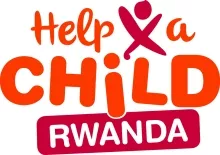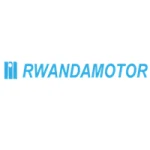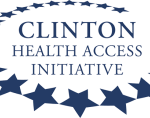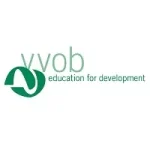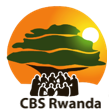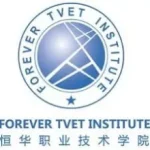Help a Child (Red een Kind) is an international NGO based in the Netherlands that has been working in Rwanda since 2008. Help a Child’s mandate is to build the resilience of children, families, and communities to affect change in their context. Children are at the heart of the organization’s Theory of Change and its vision is for all children to be healthy and strong, educated for life, morally balanced and socially equipped. To work towards this aim, HaC Rwanda works across five districts and supports local NGO partners to carry out holistic, community-based interventions. In addition, HaC also works at national level to strengthen systems and build capacity,
Website: https://www.helpachild.org
TERMS OF REFERENCE FOR INDIVIDUAL CONSULTANTS
|
Purpose |
Support Rwanda Basic Education Board to develop play material standards, map and create a systematic and detailed catalogue of play materials that are suitable for early childhood education and primary school level. |
|
Type of consultancy:
|
Delivery based. |
|
Location |
Kigali, Rwanda |
|
Duration |
3 months |
|
Start Date |
January to March 2025. |
|
Reporting to |
Rwanda Basic Education Board: Head of the Department of Curriculum, Teaching and Learning Materials development (with technical assistance from UNICEF and NCDA) |
Background:
Rwanda has made great progress in the education sector, especially at the primary level, where access is universal, and the net enrolment rate (NER) is over 95.2 percent for both girls and boys.
The government considers education as a key driver for realizing ‘Vision 2050’, the national aspiration[2] to become a high-income, knowledge-based economy. However, pre-primary NER has only increased modestly – from 12.7 percent in 2012 (13.2 percent girls, 12.2 percent boys) to 27.9 percent in 2022 (27.8 percent boys, 28 percent girls)[3] – and is far below the target of 45 percent by 2024 set in the 2018–2024 education sector strategic plan (ESSP). Access to pre-primary education has not significantly expanded, mainly because the 2013–17 ESSP prioritized nine years of basic education (six years’ primary and three years’ secondary) and did not allocate a budget to pre-primary education. Pre-primary education was instead largely offered by private providers, including community initiatives. 2012 statistics from the Ministry of Education (MINEDUC) showed only two public schools in Rwanda offering pre-primary education compared to 1,868 private pre-primary schools.
To ensure more children attend ECD programme and primary school and learn, there is a need for various availability of resources that support implementation of the curriculum, and which help learners to assimilate the content in a stress-free and material-rich environment suitable for a learning. UNICEF, with LEGO Foundation support, aims to support Rwanda Basic Education Board to enhance the quality of early childhood education and primary school by promoting the use of appropriate play materials in educational settings. To achieve this, REB requires the expertise of a technical staff member to undertake the mapping of play materials and develop a comprehensive catalogue for reference and supporting the coordination of learning through play initiatives.
Understandably, teaching and learning materials provide a critical entry point for the integration of LtP into education services delivery. These include both subject content and teacher guides for each grade, plus teaching aids provided by the government to support the delivery of lessons.
The Curriculum, Teaching & Learning Resources Department (CTLRD) in REB leads the development of teaching and learning materials to support implementation of the basic education CBC. As well as text-based materials, emphasis has been put on the development of tactile materials to support the psychomotor skills intended to be nurtured by the CBC. Since 2016, when the CBC was rolled out, several partners have committed to supporting the development of tactile materials to support a range of subjects and targeting varied competencies.
The primary objective of developing comprehensive standards for tactile teaching and learning materials (TLMs) is to enhance the quality and consistency of these materials. Specific goals include improving learning outcomes for children, ensuring the safety and durability of materials, and streamlining the approval process for new materials. Expected outcomes include a systematic catalogue of high-quality TLMs, enhanced educational experiences for children, and a robust framework for material development and approval.
Pre-primary education, provided through school-based and community-based centres, is gaining prominence among various development partners. Apart from USAID-funded projects that provide reading materials in pre-primary schools, other partners, including UNICEF, the World Bank, and the EU, are planning to procure play materials to support the implementation of the play and competency-based curriculum approved by REB in 2016. The quality of play materials must meet specific standards to effectively support educational activities in schools. Therefore, the purpose of this activity is to develop standards that will guide all stakeholders (service providers, parents, toy manufacturers, etc.) to create and use safe and high-quality play materials adapted to children’s developmental stages. Additionally, the activity seeks to map and establish a systematic and detailed catalogue of play materials suitable for early childhood education and primary school levels.
Purpose of Activity/Assignment:
The primary purpose of this assignment is to support REB to develop, create a systematic and detailed catalogue of play materials that are suitable for early childhood education and primary schools. This catalogue will serve as a reference guide for educators, enabling them to identify and select appropriate play materials based on age appropriateness, educational goals, and developmental needs of children.
More specifically, the consultant will:
- Conduct situational analysis of the play materials.
- Develop play material catalogue,
- Identify gaps in play materials and provide recommendation geared to promote the manufacturing and distribution on play materials.
- Facilitate and coordinate consultation workshops to draft and validate Guidelines and Standards for Play Materials
Key Tasks:
i. Conduct situational analysis of the play materials:
- Conducting research and mapping various play materials available in the market.
- Categorizing play materials based on their educational objectives, age appropriateness, and developmental benefits.
- Identifying and including information on each play material, such as manufacturer, specifications, safety features, and recommended usage
ii. Develop play material catalogue:
- Developing a user-friendly catalogue that includes descriptions, photographs, and illustrations of each play material.
- Ensuring the catalogue is accessible in both digital and print formats for easy distribution and reference.
- Collaborating with relevant stakeholders, such as early childhood education experts, teachers, and suppliers, to gather input and ensure the catalogue’s accuracy and relevance.
iii. Identify gaps in play materials and provide recommendation geared to promote the manufacturing and distribution on play materials:
- Identifying gaps in supplied play materials and recommend best course to ensure diverse availability of resources to enhance learning through play.
- Providing recommendations for suitable play materials based on different educational settings, including preschools, community centers, and home-based learning environments.
- Highlight recommendations for integrating play materials into different educational settings, including guidelines for their effective utilization.
iv. Facilitate and coordinate consultation workshops to draft and validate Guidelines and Standards for Play Materials
- Development of contextualized guidelines and standards for play materials will provide standard for production of contextualized play materials. This will improve quality of easy-to-use ECD play materials and grantee child safety. The guidelines and standards will enhance safety and quality of play materials developed and procured by manufacturers, parents and service providers for children from birth to 6 years of age as well as children in primary school. In addition, they will inform the development of ECD local kit.
- Facilitate workshops that will bring on board MINEDUC, REB, NESA, NCDA, RBS and play partners to review and validate developed standards. The consultant will integrate all comments provided during consultation workshop and ensure the standards are approved.
- All final deliverables will be in English and Kinyarwanda copyrighted MINEDUC/REB/NCDA
|
Work Assignment Overview |
|||
|
Tasks/Milestone: |
Deliverables/Outputs: |
Timeline |
Payment Schedule |
|
Conduct situational analysis of the play materials |
|
1.5 months |
15% of the total payment |
|
Develop play material catalogue |
|
3 months |
30% of the total payment |
|
Identify gaps in play materials and provide recommendation geared to promote play materials |
|
1.5 months |
15% of the total payment |
|
Facilitate and coordinate consultation workshops to draft and validate Guidelines and Standards for Play Materials |
|
NA |
40% of total payment |
|
Total estimated consultancy costs[i] |
TBD |
||
|
Budget Year: TBD |
Requesting Section/Issuing Office: Education |
Reasons why consultancy cannot be done by staff: The research on play materials and development of play material catalogue requires a dedicated staff to sit in REB for close collaboration with Department of Curriculum, Teaching and Learning Materials development. The education officer for early learning cannot handle this assignment in addition to daily work schedule. |
|
Included in Annual/Rolling Workplan: Yes No, please justify: The 2022/ 2024 rolling Work plan include activity around supporting research and learning on the status of learning through play in Rwanda, to inform the delivery of improved learning, particularly foundational learning and numeracy. |
||
|
Minimum Qualifications required: |
Knowledge/Expertise/Skills required: |
|||||||||||||||
|
Bachelors Masters PhD Other Enter Disciplines: The qualifications and skill areas required include:
|
The consultant should have the following skills and experience:
|
|||||||||||||||
|
The criteria for evaluation will be as follows:
The technical proposal will be evaluated at 75%, while the financial proposal will be evaluated at 25%. The candidate who receives the highest overall score will be selected. |
||||||||||||||||
How to Apply
To apply for this consultancy assignment, please submit your application to info@hacrwanda.org by January 6th, 2025, with the subject line: ‘Application for Consultancy: Development of Play Material Standards and Catalogue.’
Your application should include the following:
Technical Proposal:
- A brief explanation demonstrating your understanding of the scope of work outlined in the Terms of Reference (TORs).
- An outline of your professional experience related to education, material development, pedagogy, and curriculum design.
- Details of your education background, highlighting a Bachelor’s or Master’s degree in education or social sciences with a minimum of seven years of relevant experience.
- Evidence of expertise in evaluating and assessing educational teaching and learning materials, particularly in collaboration with REB or other education partners in Rwanda.
- Examples/reference of previous work.
Financial Proposal:
- A clear breakdown of the overall cost for the consultancy, detailing how you intend to allocate the budget according to the deliverables and milestones provided in the TORs.
- Any additional costs that may arise during the course of the consultancy (if applicable).
Your application should clearly address the technical criteria (75%) and financial criteria (25%) outlined in the TORs, with a focus on demonstrating your ability to successfully deliver the expected outcomes of the assignment.
We look forward to receiving your application and appreciate your interest in supporting the Rwanda Basic Education Board in enhancing early childhood education and primary school standards.
All inquiries or requests for clarifications related to this call should be sent via email to info@hacrwanda.org before the submission deadline
Deadline for submission: January 6th, 2025.
Attachment
